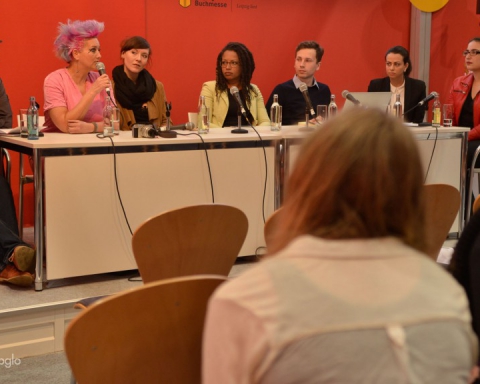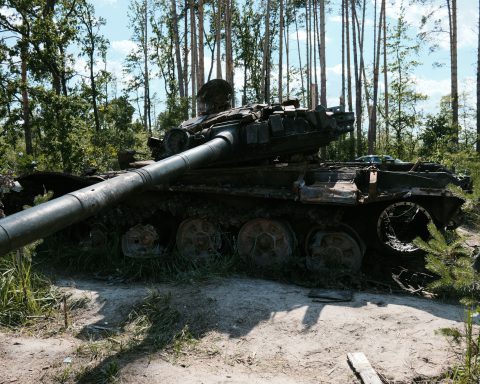Not knowing is the most intimate.
This is a story about getting evacuated on a summer night in Leipzig because a bomb from World War II had been found in a construction site behind my home. I don’t know if this story is true or not, but I know that it was very close.
Francis Lewis Carpenter, the kid in the middle in this picture, let’s say, had joined up straight out of school. It was that or work for his old man and miss all the fun.

He trained as an airman and was put on an aircrew as a bombardier.
Francis Lewis Carpenter was known to his mates as Lou-Lou, because he was a buck twenty soaking wet, nervous and giggly, and because the men hoped that by their affection and chiding they could keep his nerves from collapsing entirely. Lou-Lou was the puppy, the kid dancing around your feet when you landed and before you went up, looking for reassurance, needing the firm gaze of the older and bigger men on him before he would settle, before he could make sense of what was about to happen.
Lou-Lou was their kid, often enough addressed as Kid as in ‘Look sharp, Kid!’ or ‘Move along, Kid!’. Keeping him from cracking was the human labor that kept the men of his crew together.
Lou-Lou, giggling and chattering and trying to sock people in the ribs, lived through the war in spirals of revulsion and desire, nauseous at the sight of his slender fingers around the lever that would drop a bomb onto a house or a farm or a school or a hospital, hungry for the nearer impact of the men’s hands on his back or smacking into his palm.
Lou-Lou was a kid on a noisy plane living in a world where the only love he could get must be got through dealing death, cheerfully and reliably, from his perch far forward in the turret with his bombsight and his maps.
On 4 December 1943, they went up over past Berlin, farther than they had been able to fly across at the start of the war.
This mission included dozens of other US and RAF planes, trying to hit the tracks between Berlin and Leipzig, Leipzig and Dresden, or the station itself.

Lou-Lou hadn’t slept, was drinking a little wildly, was starting to get too quiet. Hank, the pilot, the guy on the far left in this picture, let’s say, had an eye on him. It would be OK. When they landed Hank would yell at him or take him aside and play cards with him and keep him from drinking any more and put him to bed if he was already that bad.
Flying at night, shouting into the radio with the navigator and ground control, his nerves shot, on 4 December 1943, Lou-Lou jumped the gun. He pulled the lever two seconds too soon, and his bombs fell shy of the station and ploughed into the ground.
Seventy five years later, I stood in the cobbled street talking to a chubby-cheeked young German policeman.
I had walked out the front door to see my whole block cordoned off and cops swarming everywhere, looked at this chubby one and grinned and said, “It wasn’t me.” My new cop friend said, “No, it’s not you, it’s a bomb.” I was on my way out to meet a friend, nothing with me but my little brown clutch.
He sent me back in to pack a bag because we were going to be evacuated that night. I did what I have done a dozen times before in my life. I threw my things in a bag and cleared off, not knowing whether or when I would ever be back or what would become of the seven years of love that had soaked into these walls.
I thought of which friend I could hit up for a place to crash for the night, who I could call on to salute our years of love with clean sheets on short notice.
Lou-Lou’s bomb had failed to detonate and rested, blithely, 300 yards short of the station but only ten yards from my home.
Yesterday, workers who were digging the underground parking garage for a new block of posh flats came across it and reported it. The inspection team had missed it, and it was only discovered at all because the man operating the digger went in straight under it and pulled it out neatly in the middle of his load of dirt.
If he had been two feet farther to the left, he, his mates, my home and neighbors, all the loves and miseries witnessed by our skins and our walls would have been blown away.
I had just gone those 300 yards between me and the station when I came home from Oslo that night. And those ten yards from the bomb to my front door are the path home when I get off a number 12 tram. Now those are Lou-Lou’s yards, yards and time and unburned buildings that belong to whoever pulled the lever too soon and whoever wired that bomb too loosely.
Those little quotidian distances are now pilgrimages of contingency and grace.

I don’t know what happened to Lou-Lou. I can only see him as that kid on the plane, hungry and nauseous and keen, and his fine-built hand on that lever. I do know what happened to my building. Because it wasn’t her first war. Napoleon’s soldiers drank here, and after the Battle of the Nations it was opened up to harbor 500 injured men.
Today my heart is big with the knowledge that I live in the right place, between these walls who know how to stay standing and shelter the wounded.










